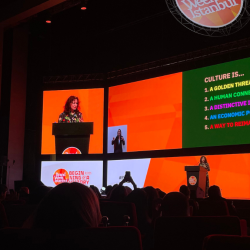Lately, I’ve had MrBeast on the brain…
With a cool 204M subscribers, MrBeast is the world’s top YouTuber. He first went viral in 2017 for counting to 10,000 in real time and shot to meteoric fame through subsequent unconventional stunts. His pioneering blend of charitable donations and outrageous, exorbitant spectacle has established his status as a philanthropic powerhouse. He pioneered a new wave of content-driven fundraising, with other creators copying the ‘MrBeast formula’ in hopes of similar blistering success.
Such content has always remained at the periphery of my online consumption. If you’ve spent any time on YouTube reels you’ll be familiar with the format: a creator asks a down-on-their-luck stranger for money and — plot twist, rewards their generosity with a wad of cash. On TikTok, the trend’s garnered 70M views under the hashtag #HonestyTest, where it’s evolved into a ‘social experiment’ that challenges people to return planted money or face public shaming.
Often these videos are painfully staged, yet their undeniable popularity raises moral concerns. Is today’s intersection of entertainment and altruism ethical? Is the intent behind these acts, if self-aggrandising, superseded by the scale of their impact? How is the demand for this content reshaping the nature of modern charitable giving?
Repackaging poverty porn
Whilst MrBeast has been instrumental in bringing charity-as-content to the fore, he’s hardly the first to have his methods questioned (or be branded a white saviour). After all, poverty porn pervaded the ’80s; a golden age of charity ads, when asking the whole of Africa, ‘Hey, do you know about this cool thing called Christmas?’ was all the rage.
The criticisms that surrounded Band Aid’s 1984 hit draw some parallels with modern-day, performative philanthropy. They both rely on portraying limited narratives of vulnerable individuals, with the aim to elicit audience attention and financial support. Whilst most content creators don’t tug at heartstrings with harrowing images of disease, destitution and famine, many reduce their beneficiaries to props for content; a vague canvas on which to project their own virtuosity.
There is something inherently supercilious about many of these videos. Rather than warm and fuzzy, I feel conflicted watching someone weep in gratitude with a camera shoved in their face. When presented with a life-changing amount of money, can these people truly consent? Have we fostered a culture where the vulnerable must perform for views before they’re deemed worthy of support?
Curing the blind: a MrBeast case study
I’ve not focused on MrBeast because he’s the worst of the bunch. If anything, in a world teeming with Andrew Tate-a-likes, it’s comforting that YouTube’s most successful influencer is someone who promotes doing good.
Rather, he provides a fitting case study with an upload from January, entitled: 1,000 Blind People See For the First Time. In a speedy eight minute-run we see MrBeast fund sight-restoring cataract surgery to hundreds of patients, capturing their delighted reactions post-op. A woman falls to the ground after he gifts her $10,000. A man weeps seeing his son for the first time. A teen shares the isolation he felt being unable to drive, and is surprised with a new Tesla.
To call the reaction to this video mixed is mild. ‘He cares about poor and disabled people because they make him money,‘ disparaged one Twitter user. Sharing screenshots of the video, another wrote, ‘There is something so demonic about this.‘ When MrBeast responded to the backlash with a tongue-in-cheek tweet, expressing his ‘damned if I do’ dilemma, one user encapsulated the issue many have with MrBeast’s brazen, noisy style of fundraising: ‘Why not just do good with no reward other than self satisfaction, knowing you’re making the world a better place?’
The problem with philanthrocapitalism
Here lies the problem of philanthrocapitalism, where capitalist, market-based approaches are applied to charitable actions. When acts of kindness become business ventures or content for mass consumption, it’s impossible to disentangle their positive, societal impact from the reputational and financial perks awarded to MrBeast and other similar, ridiculously wealthy benefactors.
In an interview for The Guardian, journalist Anand Giridharadas underscores a fundamental flaw in this system: ‘We have outsourced the betterment of our world to people with a vested interest in making sure we don’t make it too, too much better. By placing this responsibility in the hands of billionaires we transform them into benevolent messiahs, providing a cover of goodness to mask their sins. We force vulnerable people to perform, because there’s no other way to have their needs met. We’re upholding a system where philanthropy is a product; a commodity shaped by the attention economy, where good deeds are measured foremost by their profitability.
Superficial change vs. structural impact
In the same interview Giridharadas writes, ‘generosity is not a substitute for justice.’ Modern philanthropy often delivers short-lived, superficial change. These grand displays, although certainly life-changing for the individuals involved, mostly offer one-time, surface level solutions that fail to address the systemic roots of these issues.
This very problem underpins MrBeast’s ‘curing the blind’ video. At the start, it’s revealed that ‘half of all the blindness in the world is people who need a 10-minute surgery.’ ‘We shut off access to a 10-minute procedure because we paywalled it,’ remarks Twitch commentator Hasan Piker in his reaction to the video. ‘It’s so insanely frustrating that it’s up to one YouTube guy to decide to make content about it.‘ Mr Beast himself recognises this, challenging governments to ‘step in and help.‘
As for where brands and businesses can step in? The creative industry’s power lies in our ability to tell and share authentic narratives — stories that involve de-emphasising our own influence. Corporate social responsibility initiatives should not be an opportunity for virtue-signalling or deflection. Truly addressing the issues that impact people in need, be it poverty, homelessness or injustice, requires recognising that the solutions often lie within the communities themselves.
We must ensure that these stories belong to the people they’re about, prioritising listening, collaboration, nuance, empowerment and respect.
Changing the world is no mean feat, yet consumers today are looking to brands to be active agents of societal change. Perhaps the industry can inspire the next wave of philanthropy; ethical, empowering storytelling that prioritises transparency, community engagement and education. The best stories of real change are always about when we come together, demand our rights and hold our structures accountable.
Featured image: Michael Dziedzic / Unsplash




























